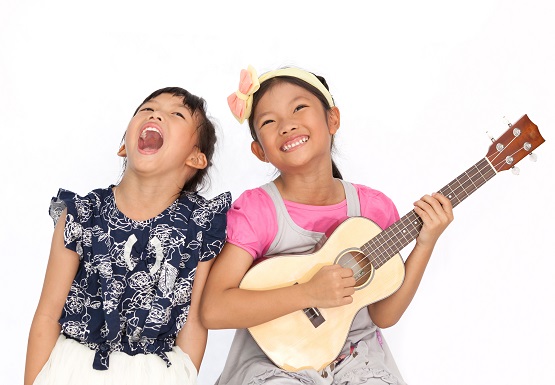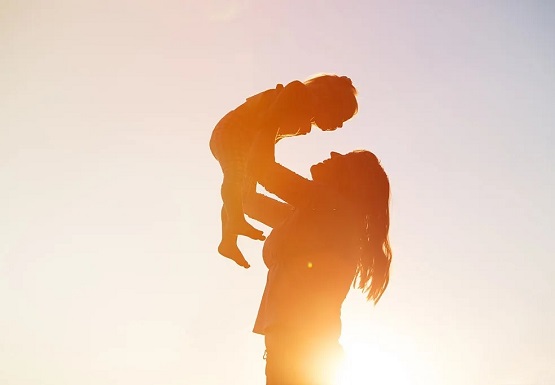Musical Kids Are Sociable Kids

Early engagement with music can help your child become a team player, an empathetic friend and a broad-minded person.
NEVER TOO YOUNG
Babies listen to music, perhaps more attentively than at any other age. Research has shown heightened brain activity in newborns when music was played. The reactions were increased when movement was involved while music was playing.
It follows that babies respond not only to rhythmic patterns in music, but also to those in speech. By exposing a baby to music, you are helping to attune his ear to the cadences of the human voice. In general, babies respond favourably to ‘baby talk’, cooing, humming and singing. Hence, early exposure to music may support babies’ earliest abilities to engage in positive social interactions with loved ones.
GROUP GROOVING
For young children, music is best experienced in a group. Learning music through games helps because everybody likes to play games! In group music-making, children develop intrinsic skills like respect and waiting to take their turn. For example, tasking a child to sing in rounds, leaving out some lyrics and joining in for others, is a great way to teach self-control and self-regulation. The same goes for playing instruments – hitting the triangle or tambourine at a certain point in time requires great self-control, not to mention listening skills. Resisting the impulse to do something is of course a vital life skill at any age.
Group music-making not only teaches children when to step back, but also when to step up. In class or at home, when children are encouraged to take the lead for others to follow, their confidence will grow. When applause follows, even if the lyrics are a little muddled, the child’s self-esteem will soar.
APPRECIATION OF DIVERSITY
Group music-making can teach children to appreciate and respect differences in ability as well as differences of opinion and expression. Some children like beating on a drum, while others may prefer blowing on a recorder. When dancing, one child may sway his body in a laid-back manner, while another may exuberantly star-jump and twirl. It helps children understand the fundamental notion that everyone is different and entitled to express his or her own unique response to a situation.
Music also helps children develop an appreciation of and respect for diversity. Children are not born with a set of musical tastes. Rather, it develops over time due to societal experiences, encounters with different genres of music in the home and school environments, and so on. Hence, children should be exposed to all kinds of music. The marvellous multi-faceted nature of music in its width of rhythms, sounds, beats, contrasting parts, different voices and different instruments can be only be introduced to young children by allowing them to listen to almost everything (save trance and techno) – from nursery rhymes through to folk, jazz and orchestral music.
Exposure to music from other cultures is a great way to introduce children to the concept of human diversity. World music can literally open their ears and subsequently their eyes to the incredible possibilities of human experience on our planet.
THE MAGIC MIX
Children have an innate need to move, sing and play. Activities work best when they are delivered to their level with these components. Music should never be a ‘read and perform’ subject for children, and it is important to note that adults and children do not interact with music in the same way.
Music experiences should be ‘whole-child’ experiences. In other words, it is not possible to segregate a socially and emotionally beneficial activity from a cognitive, physical or musical one. In general, positive musical activities and experiences will help develop every aspect of a child.
This article is taken from our My Alvernia Magazine Issue #35. Click here to read the issue on our website or on Magzter.



